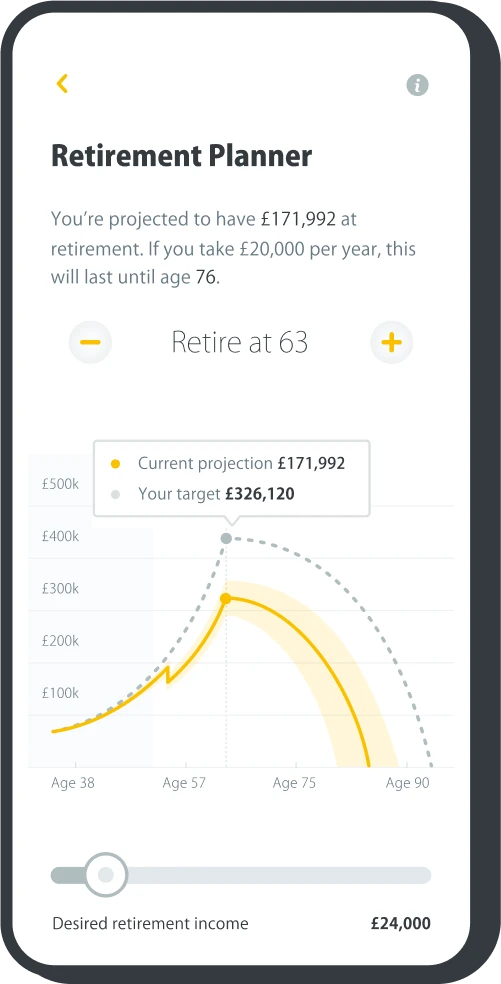Featured articles
Inheriting an ISA
If you’ve inherited an Individual Savings Account (ISA) or want to understand what happens when you pass one on, it helps to know the rules. ISAs are closed after death and the money becomes part of the account holder’s estate. But a spouse or civil partner may still benefit from the tax advantages that come with having an ISA.
Inheriting an ISA from a parent
If you inherit an ISA from a parent, friend or any other relative, excluding a spouse or civil partner, the account will be closed. The money becomes part of the deceased’s estate and is usually paid out in cash once their finances have been settled. Depending on the value of the estate, you may need to pay Inheritance Tax (IHT).
How tax might affect what you inherit
If you inherit money that was held in an ISA, here are a few things to know:
- the ISA’s tax-free status ends when the account holder dies;
- if the estate (including the ISA) is worth more than £325,000 then *IHT may apply at a rate of 40%;
- you won’t pay Income Tax or capital gains tax (CGT) on the amount you inherit, but any growth in the ISA’s value before the estate is settled might be taxable; and
- to keep your inherited funds growing tax-free, you’d need to move them into your own ISA. This will count towards your annual ISA allowance of £20,000 (2025/26).
*The rules around IHT are complex. Find out more about IHT thresholds and exemptions.
Inheriting an ISA from a spouse
If your spouse or civil partner passes away, you won’t inherit their ISA account directly. But you may be able to retain the tax benefits through an Additional Permitted Subscription (APS).
An APS is a one-off allowance equal to the value of their ISA at the time of death. It lets you pay that amount into your own ISA without affecting your usual annual limit of £20,000 (2025/26).
You’ll normally apply for an APS through the deceased’s ISA provider. Some providers allow you to transfer the APS to another provider, but both providers must agree to the transfer.
How much is the APS allowance?
The value of your APS allowance depends on when your spouse or civil partner died. If they passed away on or after 6 April 2018, you have two options:
- you can use the ISA’s value on the date of death; or
- you can choose the value at the earliest of the date the ISA is closed, the date the estate is settled or the third anniversary of the death.
This second option can sometimes give you a larger APS allowance, as the ISA may continue to grow in value for up to three years after death.
If they died on or before 5 April 2018, the APS allowance is based on the value of their ISA at the time they passed away.
How the APS allowance works in practice
If your spouse or civil partner’s ISA was worth £45,000, you’d be able to add that amount into your own ISA using the APS allowance. Combined with your usual £20,000 limit, you could save up to £65,000 tax-free per tax year.
Be pension confident.
Combine your old pension pots into one new online plan. It takes just a few minutes to sign up.
Get startedHow long do I have to use my APS allowance?
You’ll usually have three years from the date of death to use your APS allowance. But if sorting out the estate takes longer, you’ll have up to 180 days from the date it’s settled instead – whichever gives you more time.
Can you keep inherited funds in an ISA?
Not unless you’re a surviving spouse or civil partner. In most cases, the money can’t stay in the deceased’s ISA or be moved into your own without using your annual allowance. If you do reinvest it, just keep in mind it’ll count towards your yearly ISA limit of £20,000 (2025/26).
Planning your next steps
It’s natural to have questions when you inherit an ISA. But once you understand your options, it becomes easier to plan ahead. If you’re unsure what’s best for your situation, it may be worth speaking to a qualified Independent Financial Adviser (IFA). You can find an IFA via websites like Unbiased and MoneyHelper.
Understanding ISAs
Looking to learn more about ISAs? Explore our articles below:
- What is an ISA?
- What is a Cash ISA?
- What is a Lifetime ISA?
- What is a Stocks and Shares ISA?
- What is an Innovative Finance ISA?
Risk warning
As always with investments, your capital is at risk. The value of your investment can go down as well as up, and you may get back less than you invest. This information should not be regarded as financial advice.
Last edited: 01-07-2025







